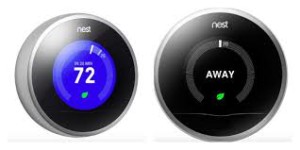
7 April 2016 – Alphabet-owned Nest, a home automation company acquired by Google in 2014, recently announced that it will be turning off Revolv Hub next month.
This move is causing quite a stir among people … well, like me … who purchased the $300 Revolv Hub devices — customers who reasonably expected that the promised “lifetime” of updates would enable the hardware they paid for to actually work, only to discover the manufacturer can turn their device into a useless brick when it so chooses. The firestorm that ensued caused a hasty announcement from Nest that it “may” offer compensation.
This is far from the first time that customers’ software and electronics have been downgraded by manufacturers. Updates can disable features the customer paid for that have fallen out of favor with the vendor, as when Google disabled privacy settings on Android or Sony took away the ability to run GNU/Linux on a Playstation 3. Manufacturers can even render a device unusable until the customer “agrees” to new terms of use, as Nintendo did with the Wii U. Other software and devices, including some video games, are designed so they simply stop working when they can no longer dial home to a server run by the vendor.
Google/Nest’s decision raises an interesting question. When software and hardware are intertwined, does a warranty mean you stop supporting the hardware or does it mean that the manufacturer can intentionally disable it without consequence? Nest seems to believe the latter. It believes they have the right to reach into your home and pull the plug on your Nest products.
To be clear, they are not simply ceasing to support the product, rather they are advising customers that on May 15th a container of hummus will actually be infinitely more useful than the Revolv hub. Google is intentionally bricking hardware that I own. That’s a pretty blatant “screw you” to every person who trusted in them and bought their hardware. They didn’t post this notice until long after Google had made the acquisition, so these are Google’s words.
Revolv was acquired by Nest in 2014, and it is believed that all Nest wanted from the acquisition was talent and workforce. An older version of Revolv website reveals that its hub was marketed to have “free lifetime service subscription,” “free monthly updates for additional device support,” and “free future firmware updates to automatically activate new radios.”
James Grimmelmann, a professor of law at the University of Maryland in the U.S. who writes extensively about how laws regulating software affect freedom, wealth, and power, Tweeted:
“I didn’t realize that Revolv promised free lifetime service. That makes the shutdown a deceptive trade practice as well as an unfair one.”
Aaron Parecki, co-founder of IndieWebCamp and a Twitter/LinkedIn buddy, Tweeted:
“Your friendly reminder that without open standards, you’re not “buying” smarthome hardware, you’re renting it.”
In an ideal world, Nest Hub owners would be free to point their devices at a different central server, run by a third-party competitor or a trusted friend, or even run such a server on their own. They would likewise be free to collaborate on improved software that would unlock the potential of the Hub hardware or purchase such software from a competitor to Nest.
But, but, but … as the Electronic Frontier Foundation (EFF) has pointed out in other examples, such conduct violates the DMCA’s Section 1201. Last year, for example, video game companies told the Librarian of Congress that it would violate Section 1201 for a customer to tweak their game so it keeps working after the company stops supporting it. The EFF called for an exemption to Section 1201 so that it is clear players may keep video games alive. Something similar might work in a situation like Nest.
As I said … in an ideal world.